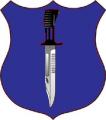Combat performance is a subjective judgment in any situation short of a total defeat of the opponent at the end of a campaign or war. Those judgments made in the political corridors are suspect, those reported in the media are suspect and those on blogs and discussion board are suspect. You might get an accurate assessment from persons actually on the ground at a point in time -- but even that would be a subjective assessment prone to modification as circumstances change.
The point of all that is that rushes to judgment seem to be endemic today and my observation has been that most of them are incorrect. Still, in the link you provided, there was this:
"Carter Malkesian, an expert at the Centre of Naval Analysis, said: “Among those in the Department of Defence who are paying attention to these operations, Britain’s reputation has probably fallen. But they still recognise that the British Army, among all the allies, are those that fight the most and fight the best.”
Everyone I've talked to who's been there gives the British high marks. As with ANY armed force, anywhere in the world at any time, units will vary in capability and performance. Everyone can't be great and even the great have bad days...
Here's an example of subjective judgment:Given the huge distances in Afghanistan, vehicles are presumed by those there to be a necessary evil; "walking around" has been proven to deny some but certainly not all freedom of movement to the Talibs. US experience has been that units that patrol heavily initiate more contacts and deny the terrain covered to the Talibs. The problem is the number of troops available versus the geography, there simply are not enough troops to provide wider coverage.And in the Afghanistan context given the IED situation that should probably mean not mounted in vehicles and not walking around in the ridiculous belief that by doing so they deny freedom of movement to the TB.
You have frequently criticized the conduct of operations in Afghanistan and you have offered some suggestions to remediate the problem you see. My perception is that your criticisms are indicative of experience and good knowledge of minor warfighting in a selected campaign but also display an apparent ignorance of conditions in Afghanistan. An attempt to fit one war as template on another usually will fail. Regardless, many of your suggestions are good and would work -- IF they were politically viable. Most do not seem to be. Politically, it would have been better had the US not decided to stay in Afghanistan and not pulled NATO into the country. Regrettably, no one asked me before they did that so we're confronted by dealing with reality instead of 'what should be.'
Those serving there do not see those factors as ridiculous. You often make strong assertions without qualification and those lessen your credibility to many. You are of course free to do so but FWIW I suspect that the basic lack of knowledge of terrain conditions, operations there and subjectivity on this topic all demonstrated here over the past weeks will not give your views a great deal of credence.

















Bookmarks